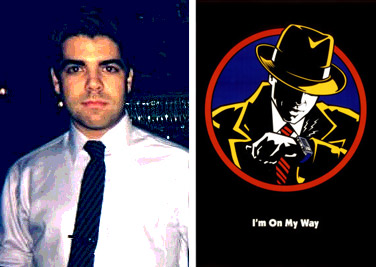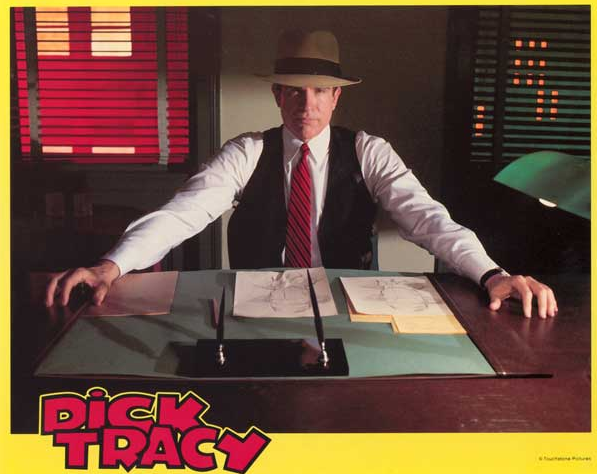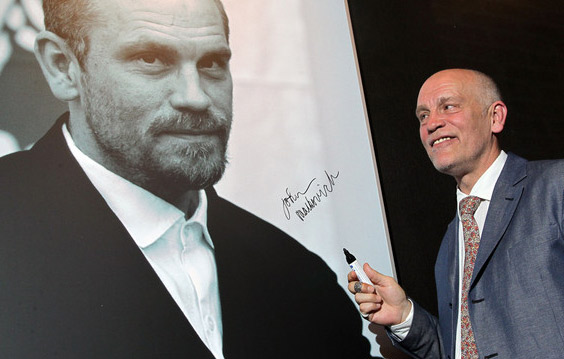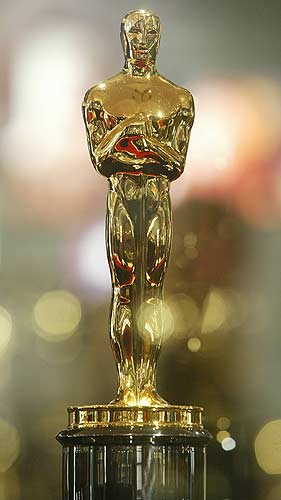Alex (BBats) here, doing a lil’ scouting in LA. Oh my oh my!
 BBats and Beatty! This past weekend, I had the pleasure to revisit Dick Tracy (1990) on the big screen courtesy of the Los Angeles Times Hero Complex Film Festival. The film hasn’t aged a day due to that rich pulp style that seeps through every set piece, costume, matte painting, and actor. The main draw was a Q & A with Warren Beatty after the film! Now, I was battling the flu and taking notes as fast as I could, so keep that in mind and I wouldn’t say anything below was a direct quote.
BBats and Beatty! This past weekend, I had the pleasure to revisit Dick Tracy (1990) on the big screen courtesy of the Los Angeles Times Hero Complex Film Festival. The film hasn’t aged a day due to that rich pulp style that seeps through every set piece, costume, matte painting, and actor. The main draw was a Q & A with Warren Beatty after the film! Now, I was battling the flu and taking notes as fast as I could, so keep that in mind and I wouldn’t say anything below was a direct quote.
Beatty stood in the wings as the film’s end credits rolled. Big applause for the film followed and I saw a big smile grow across his face. The moderator brought him out to thunderous ovation (duh). He seemed a little cagey and very careful in selecting his words; this Q & A was for the Los Angeles Times, he pointed out, and would be in print the very next day.
Hit the jump for some Beatty, Dick, and a lil' Bening action!
On Stephen Sondheim
'He did great stuff for this…I’m such a fan of Sondheim’s. Everytime I see one of his shows, I just fall apart on the first song.'
On the film itself
'I’m disgusting because I really do like it a lot.'
Beatty had been attached to the propertry since 1976. The moderator asked why he chose Dick Tracy. Beatty said that he didn’t want to do some picture where everything got blasted around, and that Dick Tracy was this guy who had been around forever and wanted to start a family. He paused and said he thought of it as a gentle picture. (Aside: I love when people call movies "pictures". Super classy.)
This next part is so funny, let's get it right by quoting directly from the Los Angeles Times.
“Little by little I found myself caught up enough in it to actually go and make a movie about it, because it was hard for me. … I always think of making a movie like vomiting. I don’t like to vomit, but I get to the point where I think, ‘I’d better go ahead and do this, and I’ll feel better.’”
Everyone rolled with laughter. The vomiting reference also maybe gives us a little glimpse as to why he hasn’t directed a film since Bulworth (1998). But back to the Q & A.
 His desk needs a bucket.
His desk needs a bucket.
Beatty began to compliment everyone in the cast and the moderator honed in on certain performances and how he cast the roles. Interestingly, Beatty compared the casting process to writing. When you cast someone it's an instant rewrite, even if you don’t change a word.
Madonna sings "MORE" in Dick Tracy and you know you want more, too: Bening, Pacino. Hoffman, Oscars and Dick Tracy sequel nuggets after the jump.
Click to read more ...
 Thursday, June 30, 2011 at 1:15PM
Thursday, June 30, 2011 at 1:15PM  Only a couple of days remain to vote on the "Character" Best Actress Polls that were posted earlier this month.
Only a couple of days remain to vote on the "Character" Best Actress Polls that were posted earlier this month. Best Actress,
Best Actress,  Oscars (90s),
Oscars (90s),  polls
polls 








